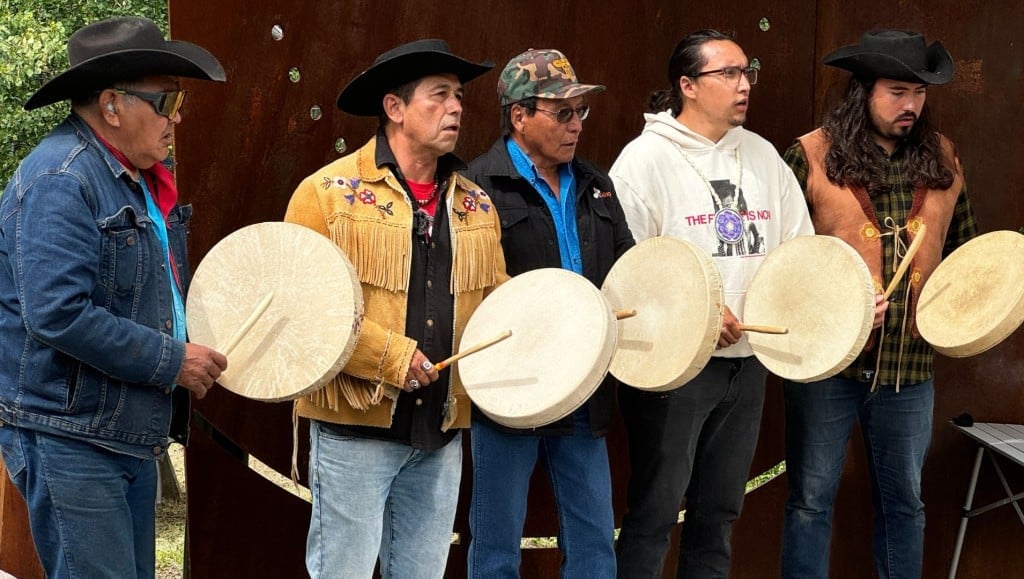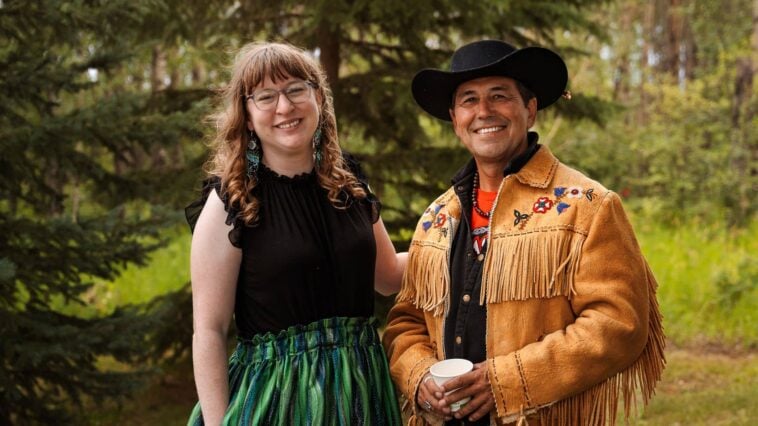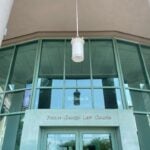By Ed Hitchins, Local Journalism Initiative Reporter, EnergeticCity
CHARLIE LAKE, B.C. — A local Indigenous-owned heritage site is being pointed to as an example of the successful repatriation of cultural items, according to the First Peoples’ Cultural Council (FPCC).
Reports released by the FPCC entitled ‘From Stealing to Healing: Repatriation and B.C. First Nations’ and ‘Repatriation Cost Analysis: A Framework and Model’ highlight 16 case studies in the province who benefited repatriation initiatives, including the returning of cultural artefacts and other materials sacred to their respective communities.
Among the case studies was Charlie Lake’s Tse’k’wa Heritage Site. Now owned by three northeast B.C. First Nations – Doig River, Prophet River and West Moberly First Nations – it was first purchased in 2012.
“These artefacts belong to our ancestors, and they left them there.”
Garry Oker, President of the Tse’k’wa Heritage Society
Its cave dates back some 12,000 years to the Ice Age.
Garry Oker, president of the Tse’k’wa Heritage Society, says the repatriation of artefacts is something which is “about identity.”
“What it really means is a lot to the connection to our ancestors,” said Oker. “These artefacts belong to our ancestors, and they left them there.”
In 2024, Simon Fraser University repatriated artefacts from excavations dating back to the 1970s to the 1990s to Tse’k’wa, which created a new artefact repository.

Among the artefacts discovered at the site include a 10,500-year-old stone bead, spear and arrow points, harpoon heads and bones from various animals, including bison and ravens.
Tse’k’wa has also hosted an archeological field school through the University of Northern British Columbia at the site.
“We have to just use best practices and knowledge, and probably talk among ourselves to ensure that we follow protocols.”
Garry Oker, President of the Tse’k’wa Heritage Society
Oker said some of the biggest obstacles was the cost of such an undertaking. Oker didn’t give specifics but the study by the FPCC estimates the cost of 204 five-year repatriation initiatives by all B.C. First Nations regarding historical artefacts could cost $660 million.
It also mentions 60 per cent of B.C. First Nations are just beginning their repatriation efforts to bring significant historical items back to their communities.
“There is no infrastructure to do this work and also the experiences of reclaiming it,” said Oker. “There are no rules in how that’s done. Everything has got to come together. We have to just use best practices and knowledge, and probably talk among ourselves to ensure that we follow protocols.”
Alyssa Currie, the executive director of the Tse’k’wa Heritage Society, calls participating in repatriation initiatives “nothing short of transformational” as a non-Indigenous person.
She says part of the work toward repatriation involves “understanding where the materials are [and] the provenance for those materials.”
“I know that part of the work Tse’k’wa still needs to do is search out some of these cultural belongings.”
Alyssa Currie, Executive Director of the Tse’k’wa Heritage Society
The FPCC’s research identifies over 2,500 ancestors and 100,000 belongings from B.C. that are currently held in 229 colonial institutions, including museums worldwide.
“Many of these cultural institutions, particularly settler institutions, maybe didn’t fully document where things came from or used the language to describe things [that] may not be the language that the communities themselves would use to describe things,” said Currie.
“I know that part of the work Tse’k’wa still needs to do is search out some of these cultural belongings.”
The study was conducted by K’yuu Enterprise Corporation, a Haida-owned company located in Skidegate, Haida Gwaii, with assistance from the FPCC.
The complete study can be found on the FPCC’s website.




